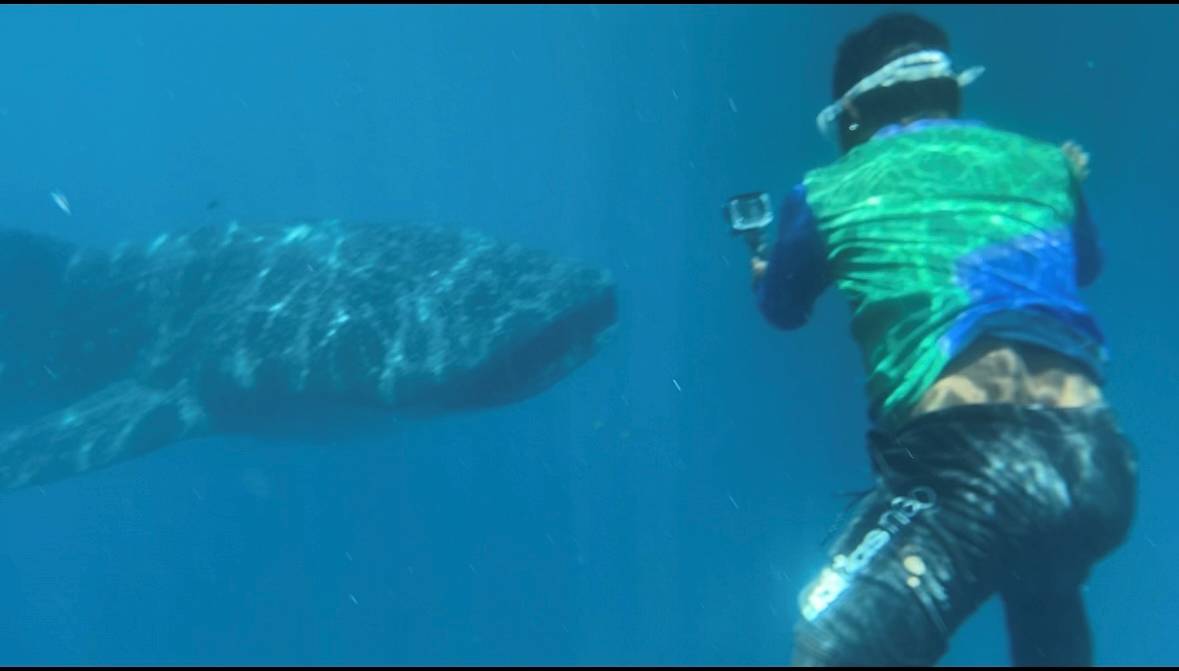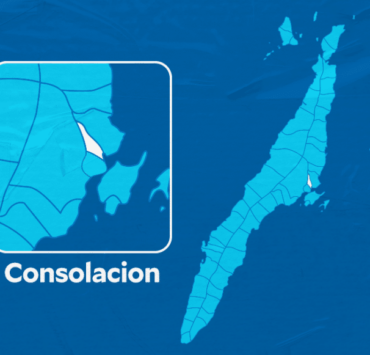No more whale shark feeding in Bohol

TAGBILARAN CITY—Bohol Gov. Erico Aristotle Aumentado has banned all kinds of interactions with whale sharks, locally known as “balilan,” especially feeding, in the towns of Lila, Alburquerque and Dauis.
“Whale shark watching is okay. What prompted me to issue a stoppage order was the feeding of these animals,” said Aumentado, referring to Executive Order (EO) No. 10 that he signed on Feb. 3.
According to the governor, the practice threatens the ecology and affects the migratory sea creature’s natural behavior to transfer from one place to another. He also cited the foul odor in waters where the whale sharks are staying, which he said might reach the beaches of Panglao Island and the surrounding waters of Balicasag Island.
“The overall image of Bohol and its tourism industry could be severely compromised, jeopardizing the livelihood of thousands of Boholanos dependent on tourism,” he said.
Aumentado’s EO merely implemented Provincial Ordinance No. 2020-008, approved on March 31, 2020 and Joint Memorandum Circular No. 1 issued by the Department of Tourism, the Department of Environment and Natural Resources (DENR), the Department of Agriculture and the Department of the Interior and Local Government that prohibited “marine wildlife provisioning” and other harmful acts against marine wildlife.
These rules ensure the safety and freedom of whale sharks (Rhincodon typus), the world’s largest known fish species, to swim in Bohol’s waters and upholding the province’s vision as an ecocultural tourism destination committed to sound environmental management.
The Philippine National Police, the Philippine Coast Guard, the Bureau of Fisheries and Aquatic Resources, and the Maritime Group and Coastal Law Enforcement Councils were tapped to enforce the stoppage order.
Bohol, a designated United Nations Educational, Scientific and Cultural Organization global geopark, is committed to preserving its rich natural and environmental resources, Aumentado said.
Whale shark interaction activities emerged as a tourist attraction in Bohol, pioneered in Lila town in 2019 and later expanding to the towns of Alburquerque and Dauis.
But operators of these activities have not secured the necessary clearances from concerned national agencies, including the DENR and the Bureau of Internal Revenue, said Aumentado.
Members of the Provincial Tourism Council and other groups have expressed serious concerns regarding the feeding of whale sharks.
The Free the Whale Sharks Coalition-Bohol described the practice as “unecological, unethical, unsustainable and unlawful.” Environmental watchdog Tagbilaran Baywatch echoed the same sentiments, saying feeding actually harms the whale sharks and the environment.
Breeding ground
The Bohol Sea is among the breeding grounds of whales, dolphins and different species of fish.
Pods and schools of these sea creatures have been seen in the waters off the towns of Jagna and Lila and Pamilacan Island in Baclayon town.
Sightings, however, diminished in the early 1990s due to rampant hunting of whale shark and dolphin.
Local and foreign conservationists decried the illicit practice that led to rare sightings, triggering the ban on hunting of these species.
The Philippines, one of the first countries in Southeast Asia with policies protecting marine animals, banned the catching, selling, or transporting of dolphins and whale sharks since 1992 through Fisheries Administrative Order No. 185.
Similar laws followed, including the Animal Welfare Act of 1998 (Republic Act No. 8485) and the Fisheries Administrative Order No. 208 on the conservation of rare, threatened, and endangered fishery species, including whales and dolphins, issued in 2001.
The Free the Whale Sharks Coalition–Bohol commended the provincial government for finally enforcing the law.
“We trust that the provincial government of Bohol and the concerned implementing agencies will see to the closure of the unecological, unethical and unsustainable whale shark tourism operations in the province,” said Liza Macalandag, one of the coalition’s conveners.
Lawyer Esther Gertrude Biliran of Tagbilaran Baywatch thanked Aumentado for what she described as a “very impressive exercise of political will” to support wildlife and the environment.
“It is long overdue. Such harmful activities should have been stopped immediately when it started in Lila before its unabated proliferation. We are grateful that Gov. Aris listened to the call to action of civil society and displayed political will to enforce our laws that protect these whale sharks and the environment as a whole,” Biliran said.

















